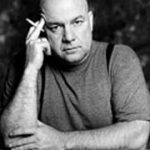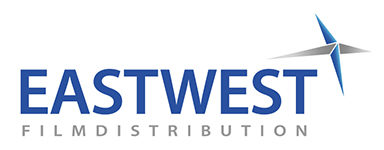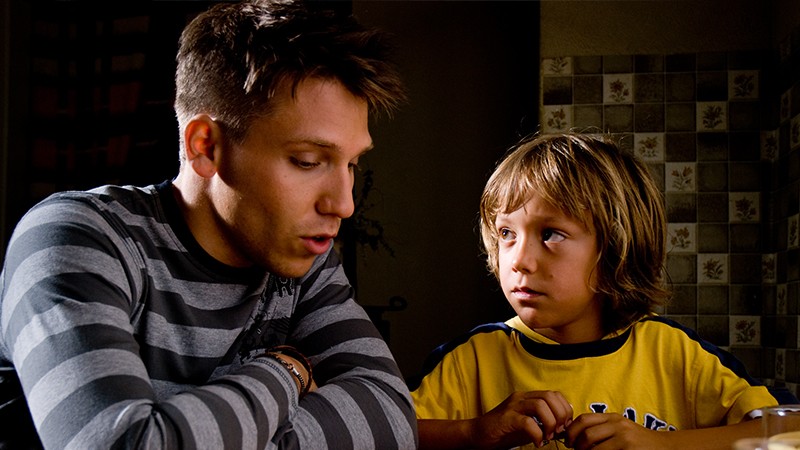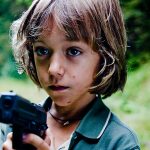Original Title: Nacht vor Augen
Synopsis
Twenty-five-year-old David returns from a Bundeswehr mission in Afghanistan to his home village in the Black Forest. His girlfriend Kirsten and his mother welcome him warmly and his shy eight-year-old brother is full of admiration for him. But David is close-mouthed, brusque, and not the same man he was before the mission. Shortly after his return, the Bundeswehr informally honours him for supposed heroism. He is said to have shot an Afghan assassin in self-defence, thereby saving the lives of his whole unit. David returns to his old job as a paramedic and lives with Kirsten. But he can’t sleep at night. Nightmares of Afghanistan plague him. David’s life gradually spirals out of control.
Technical Information
2008; Germany; Drama, War; 91 minutes; 35mm, HDCAM-SR; 1:1.85; Dolby SR; Original Language: German; Subtitles: English
DIRECTOR
Brigitte Maria Bertele
WRITER
Johanna Stuttmann
D.O.P.
Mathias Prause
EDITOR
Stephan Krumbiegel
MUSIC
Christian Biegai
PRODUCTION COMPANY
Noir Film GmbH & Co. KG
PRODUCER
Didi Danquart, Boris Michalski
David
Hanno Koffler
Benni
Jona Ruggaber
Kirsten
Petra Schmidt-Schaller
Inge
Magarita Broich
Rainer
Wolfram Koch
Felix
Maxim Mehmet
Sergeant Kleiber
Bruno Cathomas
Frau Poloczek
Christina Große

Brigitte Maria Bertele
Brigitte Maria Bertele studied acting at the Academy of Performing Arts in Ulm and film at the Baden-Württemberg Film Academy in Ludwigsburg. She took part in acting master classes in New York and Moscow and film studies in Tirana and in Buenos Aires. In 2002 she was culture editor with Saxony Television in Dresden. Her film “Horizon Zone” won Best Documentary at the Bianco Film Festival in Perugia in 2004 and the 2007 documentary “Roaming Around” won a host of prizes, including the German Editing Prize and the German Camera Prize. “A Hero’s Welcome” was shown at the Forum at the Berlinale in 2008 and has won the Baden-Württemberg MFG Screenplay prize. The film is Brigitte Maria Bertele’s feature debut.
Selective Filmography
Feature Film
Feature Documentary
Nov 10 – 17
Sep 17 – 20
Sep 17 – 20
May 26 – 26
Apr 19 – 19
Apr 15 – 21
Mar 26 – 30
Feb 03 – 25
Jan 19 – 25
Jan 15 – 21
Dec 05 – 11
GERMAN FFNov 28 – Dec 04
Nov 14 – Dec 19
Nov 06 – 15
Oct 29 – Nov 02
Oct 18 – 19
Oct 18 – 26
Oct 07 – 18 (in competition)
Sep 30
CHARLOTTE FILM FESTIVALSep 24 – 30
COPENHAGEN FILM FESTIVALSep 19 – 26
Sep 01 – 01
Aug 09 – 09
Aug 08 – 08
DURBAN Best Actor AwardJul 28
DURBAN INT. FILM FESTIVALJul 23 – Aug 03 (in competition)
EMDEN FILM FESTIVAL First Feature Film AwardJun 11
Jun 04 – 11 (in competition)
Apr 29 – May 04
Apr 15 – 19
Mar 26 – 26
Feb 12
Jan 23 – 29
Frankfurter Allgemeine Zeitung
Brigitte Maria Bertele disturbing debut […] Hanno Koffler as aggressive bed-wetter haunted by his nightmares succeeds in waking sympathy for the washed-up character.
2008-02-11
Hans-Jörg Rother
Die Zeit
“A Hero’s Welcome” describes very realistic a phenomenon that seems to appear after wars: The speechlessness of returnees. And the lack of interest of society to what they have experienced.
2008-02-14
Carolin Ströbele
ZDF Aspekte
“The film comes along quietly, but hits the audience directly and takes it beyond the festival. […] An impressive film that shows with shocking clarity, that war continuies in the minds of soldiers long after their return home.”
2013-02-11
ZDF Aspekte
Die Welt
Britta Bertele shows in an authentic way how politics rules even in the heads of simple people. David returns as a zombie from a war that no one understands.
2008-02-12
Eberhard von Elterlein

Born in 1955 in Singen (Hohentwiel). He studied psychology and sociology in Freiburg and he was founding member of the “Freiburg’s Media Factory” – a political film collective, which carried on several documentary projects. Since 1978 Didi Danquart was very active in the area of documentary films and very successful with “Wundbrand”, which he shot during the civil war in Bosnia in 1993. His first feature film was “Bohai Bohau”, which he shot in 1995. Didi also gained experience as theatre director during his years at several theatre companies in Germany. However, ever since he’s working as director, writer and producer (co-founder of NOIRFILM) and is teaching film at the “Academy of Art and Design” in Karlsruhe. “The Path to the Past” is based on the book “Lena’s Love” by Judith Kuckart.
Director’s Note
“Forgetting is a privilege of the dead”, wrote Heiner Müller in his text “Mommsen’s Block” (1993), as a philosophical reflection on the human, about all dictatorships and across other social formations. Accordingly, the remembrance is a privilege of the living. When in 2007 the author Judith Kuckart offered me to adapt her novel Lena’s love, I discovered in her book both ideas of privilege, of the dead and the living. The challenge was: how to visualize the theoretical concept of memory, to seek only the language? Watching again the great movie “Wild Strawberries” by Ingmar Bergman with its character Isak Borg, an ancient and malignant stubborn professor of medicine, I saw the reflection of one of my main characters, Julius Dahlman. Surprisingly, this old film helped me enormously to find the artistic access for today’s implementation of Kuckart’s story and motivated me to find my own way to tell a mythical road movie in which the fates of three individuals fuse in the memory and the actual time. My film is therefore a tribute to the great master of mythological films. The original German title BITTERE KIRSCHEN (Bitter Cherries) is a tribute to the Bergman’s title.
PATH TO THE PAST is the last episode of my trilogy about human condition, after “Viejud Levi” (1999) and “Offset” (2006). Characterized by a very personal experience in my life and the social stigmatization of people based on their provenance, my films are a rebellion against the collective displacement, the social disasters and the breaking up of population’s norms. The social expectations are sometimes improper: the children of Nazi perpetrators can also be victims of Fascism; a priest – despite celibacy – can also have erotic feelings and cherish women. The human condition is generally referred to the condition of the humans and the nature of man. In “PATH TO THE PAST” I let the poetic images speak when no words are needed and used a language that classifies itself in the power of nature, without being too far from everyday language. For this cinematic journey, the great actors embody some archetypes, they are committed to themselves without neglecting their dialogue. That’s why my film is a creation, that reveals itself only in its complex entity, which overrides the classical dramaturgy (as a cinematographic work). The language merges in the images to create a mythology of life and death. “THE PATH TO THE PAST” throws new questions until the end of the story without answering them explicitly.
Selective Filmography
Feature Film
2013Das letzte Wort
2006Offset
1999Viehjud Levi
1995Lemberg – Geöffnete Stadt
1995Bohai, Bohau
1994Wundbrand
1992The Pannwitz Stare
TV Series
2009SOKO Stuttgart

Brigitte Maria Bertele studied acting at the Academy of Performing Arts in Ulm and film at the Baden-Württemberg Film Academy in Ludwigsburg. She took part in acting master classes in New York and Moscow and film studies in Tirana and in Buenos Aires. In 2002 she was culture editor with Saxony Television in Dresden. Her film “Horizon Zone” won Best Documentary at the Bianco Film Festival in Perugia in 2004 and the 2007 documentary “Roaming Around” won a host of prizes, including the German Editing Prize and the German Camera Prize. “A Hero’s Welcome” was shown at the Forum at the Berlinale in 2008 and has won the Baden-Württemberg MFG Screenplay prize. The film is Brigitte Maria Bertele’s feature debut.
Selective Filmography
Feature Film
Feature Documentary









